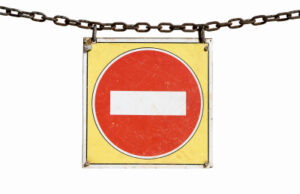 Not so long ago, search engine optimization was pretty easy. Basically a standard, moderately successful SEO strategy looked like this:
Not so long ago, search engine optimization was pretty easy. Basically a standard, moderately successful SEO strategy looked like this:
- Optimize your site.
- Write a few pieces of content per month.
- Spin that content into a million other pieces of content.
- Post the content in as many places as possible to get as many links as possible.
- Repeat on a monthly basis.
The above was achieved through various types of content, but primarily articles. However, along the way, press release sites began popping up across the web, causing online releases to become another link building vehicle.
But over the last few years, Google has forced people to not only rethink their SEO strategies, but to pretty much reinvent them. Where the quantity of inbound links a website had once mattered, now the quality of links is one of the primary deciding factors on where someone pops up in search rankings. As you can imagine, that makes things a bit more difficult for those seeking to climb the search ladder.
Times Are Changing — Should Your Links?
One of the main issues is that because so many people spent so much time building the massive quantities of links, lots of them are being looked down upon by the Google gods because one of two reasons:
- They are of low quality content.
- They come from low quality websites.
We spend a lot of time talking about how to write quality content, but what about quality links? And moreover, what do you do if you have spent years building these silly massive amounts of links, only to now fear that they will actually count against you due to their host site’s level of quality?
Well, once these changes started rolling out, people began to freak out. Fearing the worst, they began contacting some of the notably sketchier sites they had built links with asking them to remove their links, in hopes that Google would overlook their “indiscretion.” That typically went about as well as one might think. Because, let’s be honest, if it’s already a sketchy site, what are the odds they’re going to take down your links? Most of the time, link removal requests ended in one of the following:
- No response.
- Being politely told to buzz off
Google Intervenes
Luckily, Google looked down upon its people and decided to throw them a bone. Rather than let their sites suffer in the agony of low rankings to do poor link building decisions, a few months back they introduced their Disavow Link Tool.
What exactly does it do? Basically it allows you to go in and point out specific inbound links you’d like to get rid of. So for instance, say you posted an article on sketchybusinessX.com (if that’s a real site, oops) and you wish you hadn’t. You simply use the Disavow Link Tool to tell Google, “Hey, I have this link over here, but I don’t want it. Please, forgive me and remove it from my scorecard.”
If you spent a lot of time building links on your own, or hired someone to do it for you, there’s a chance you may have built some bad ones. Moreover, if your site experienced a significant drop in the search rankings over the last year or so, odds are you have some links you may need to get rid of. In that case, the Disavow Link tool may be for you.
What About Your Press Releases?
Is it possible that some of those releases you wrote and had distributed across the web gave you bad links? Is it possible that Google is penalizing you for where your releases are posted? Or maybe you spun a press release and reposted lower quality versions around the web and are getting dinged?
Well, yeah. Sure it’s possible. But the question is, what course of action should you follow? Should you disavow those links and ask them to be stricken from your record?
Not so fast.
Before you go crazy and get rid of all your PR links while screaming that the sky is falling, you need to take a few things into consideration:
- A lot press release sites have high standards — One thing I know from my years dealing with press releases is that many sites that house press releases have higher standards than article directories. Whereas the average article directory would accept any piece of content of a predetermined word count, many press release sites have measures in place to make sure you are actually posting things that contain actual news. And if they have regulations in place to ensure a bit higher quality, you can probably safely assume that the link you receive from them is not hurting you.
- Have you really analyzed your links? — Before using Google’s tool, you really need to take some time analyzing the links you’ve built. Go into your webmaster tools and see where they’re coming from. Check the sources and do a bit of research on them. And spend some time looking at your rankings. Have you experienced significant drops? If so, when? Was it around the time Google began rolling out these updates?
- Use this as your last resort — If you think a link is hurting you, you should always try to clear up the problem with the webmaster first. Should they not work with you, use this tool as your last option.
Let me be honest here — your press release links probably are not hurting you. And as Google warns in their disclaimer, most people will do more harm than good by using this tool. Might I suggest that unless you engaged in some sketchy link building in the past, you should focus your time now on building better quality links and leave the Disavow Tool alone.
As far as press releases are concerned, that means that you should:
- Take time to become a better press release writer.
- Only write releases when you have real news.
- Make sure you use a press release distribution company you can trust.
Have you used Google’s Disavow Link Tool? If so, tell us about your experience.
This article is written by Mickie Kennedy, founder of eReleases (https://www.ereleases.com), the online leader in affordable press release distribution. Grab your free 160-page copy of the Big Press Release Book – Press Releases for Every Occasion and Industry here: https://www.ereleases.com/free-offer/big-press-release-samples-book/
